Introduction
In recent months, Aljabal Holding has been steadily building its footprint in East Africa’s infrastructure supply chain—most notably with its repeated shipments of Bitumen 80/100 to Ethiopia. Infrastructure demands across the country are rising sharply, and the need for reliable materials—especially paving bitumen—is more critical than ever. While much has been reported about the third shipment in August 2025, interestingly there is less concrete public documentation about a fourth Bitumen 80/100 shipment to Ethiopia in that same period.
This article dives into what is known about Aljabal Holding’s exports, the context of Ethiopia’s infrastructural needs, what Bitumen 80/100 means in practice, and whether there is credible evidence or data confirming this supposed fourth shipment. By investigating the available sources, we aim to clarify the situation and offer insight into how such shipments impact trade, infrastructure, and regional development.
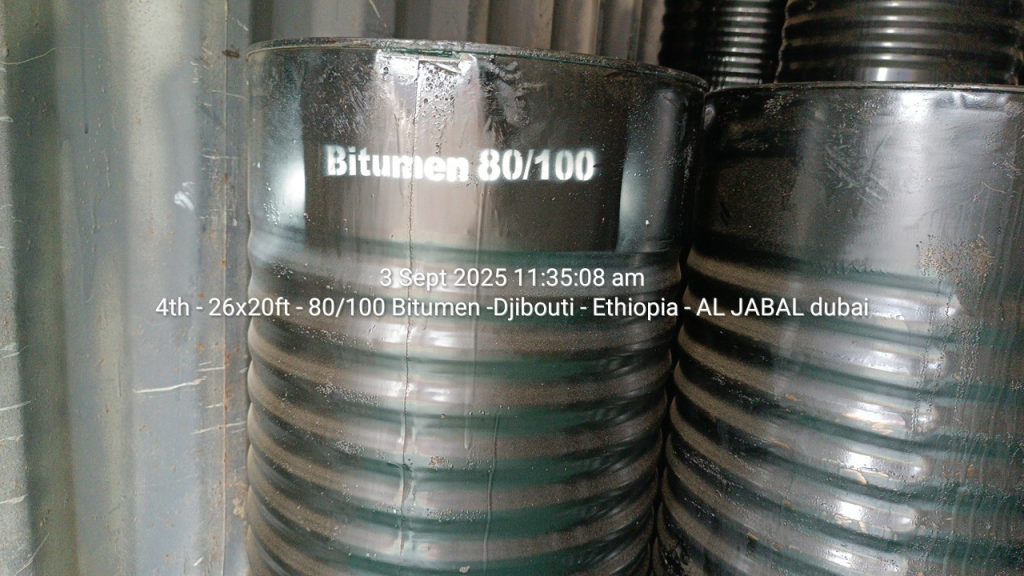
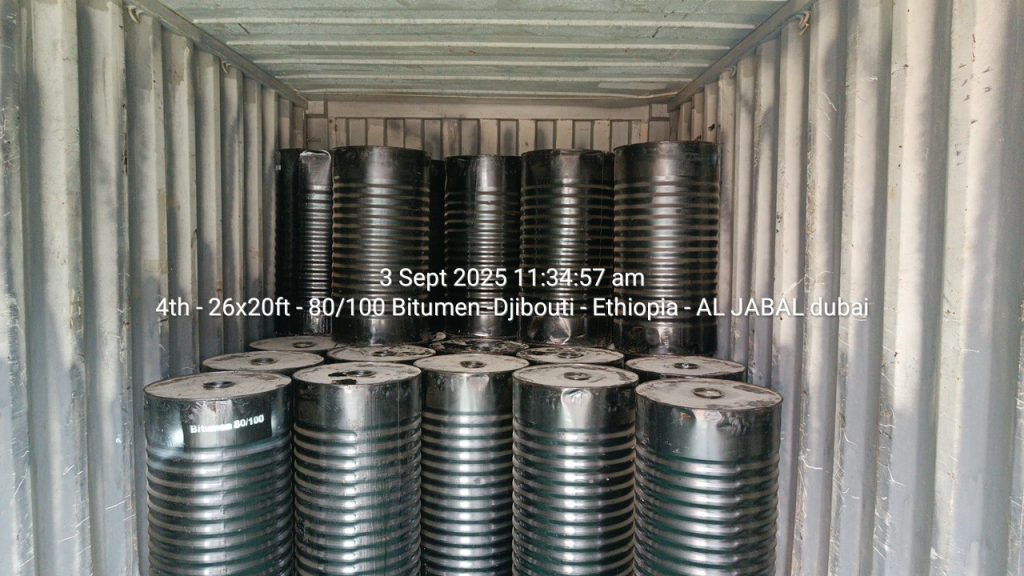
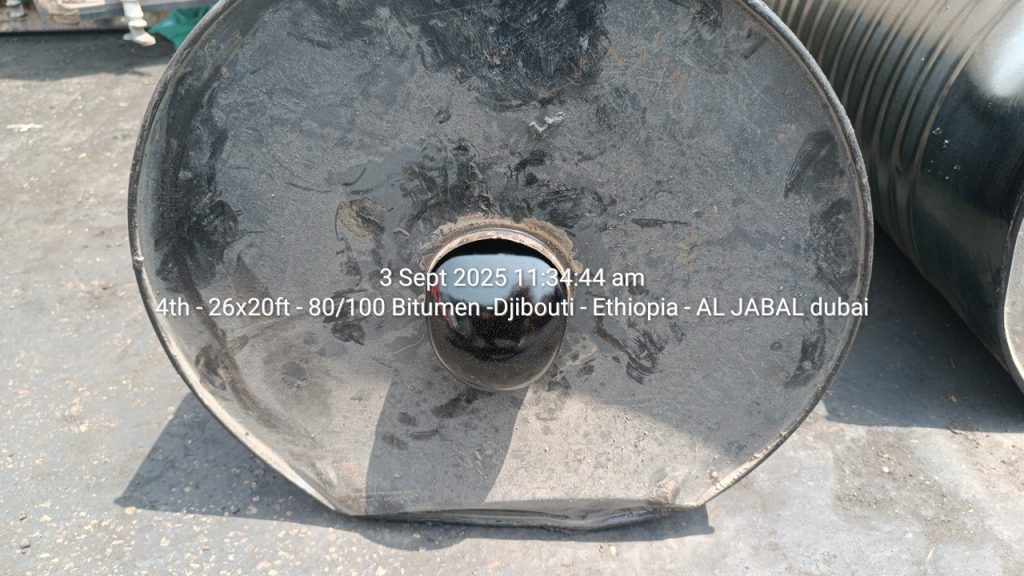
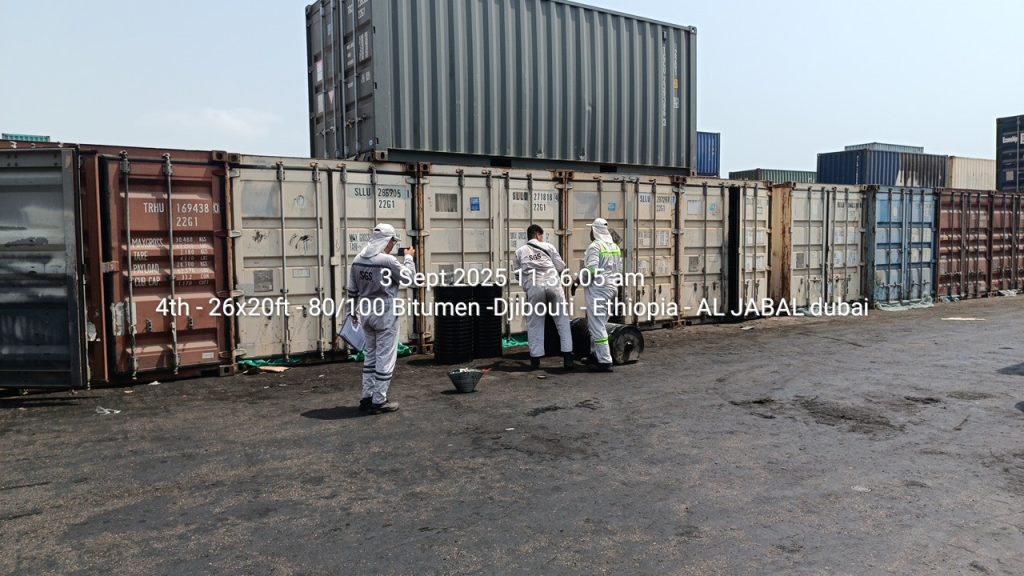
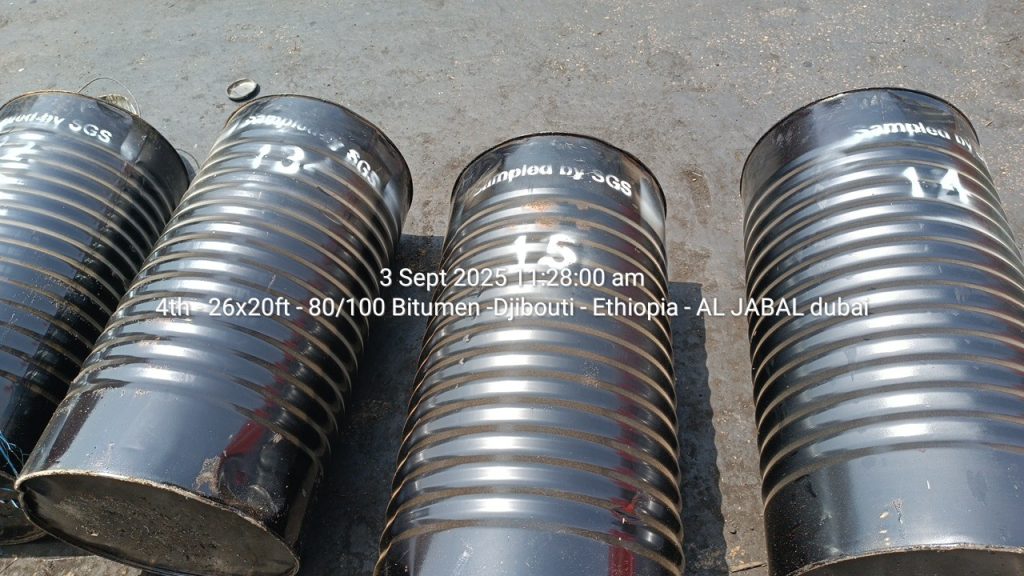
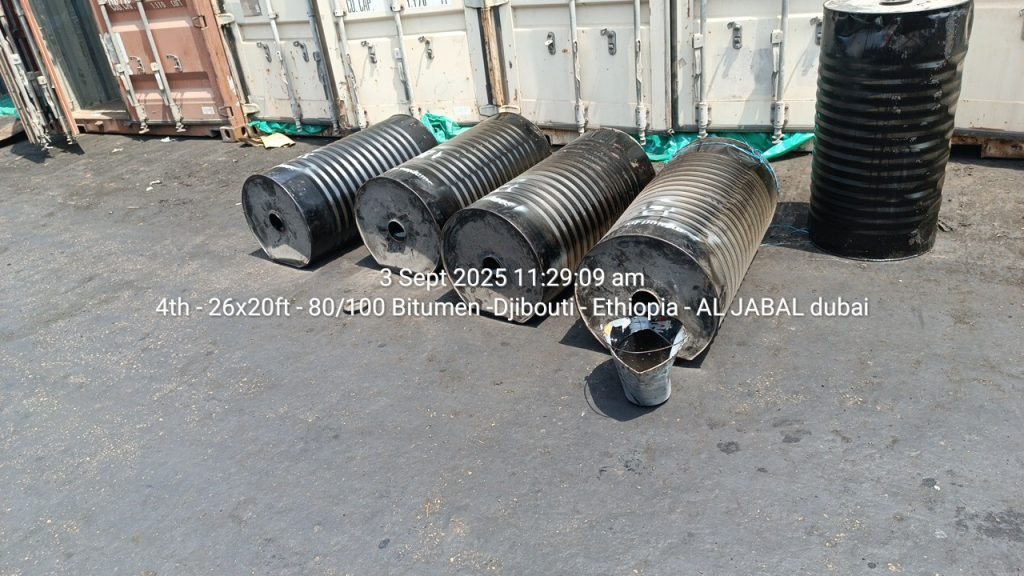
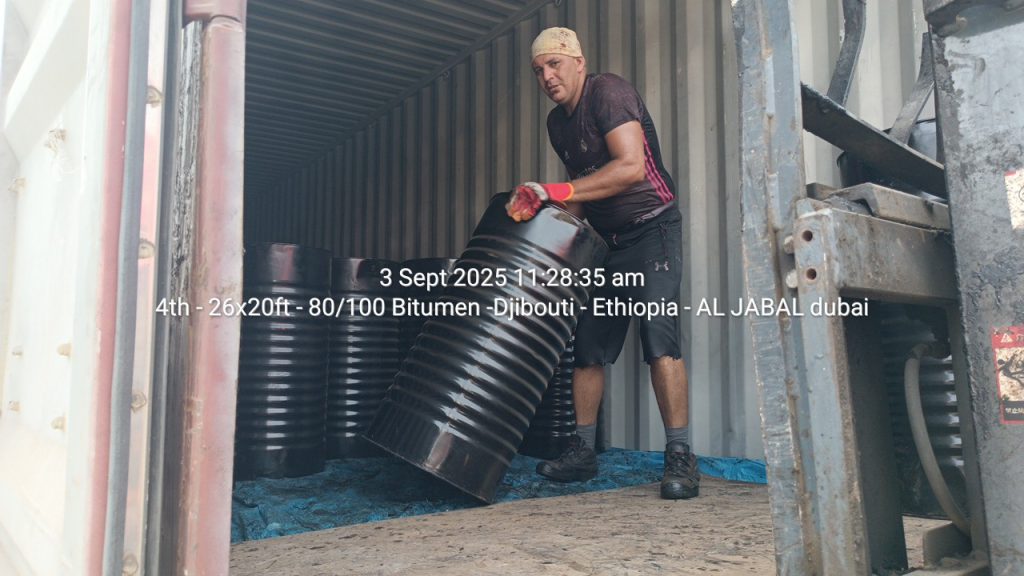
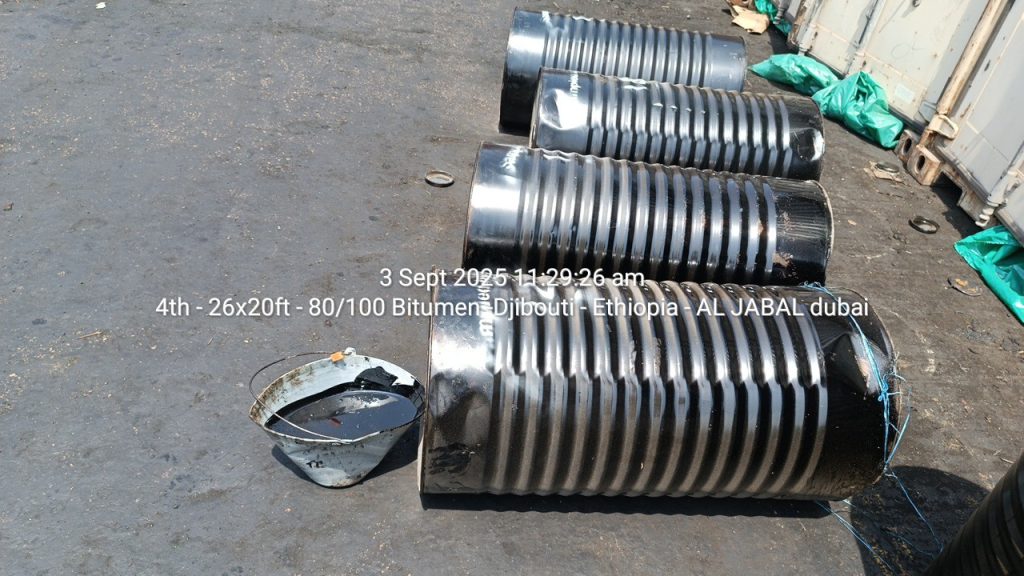
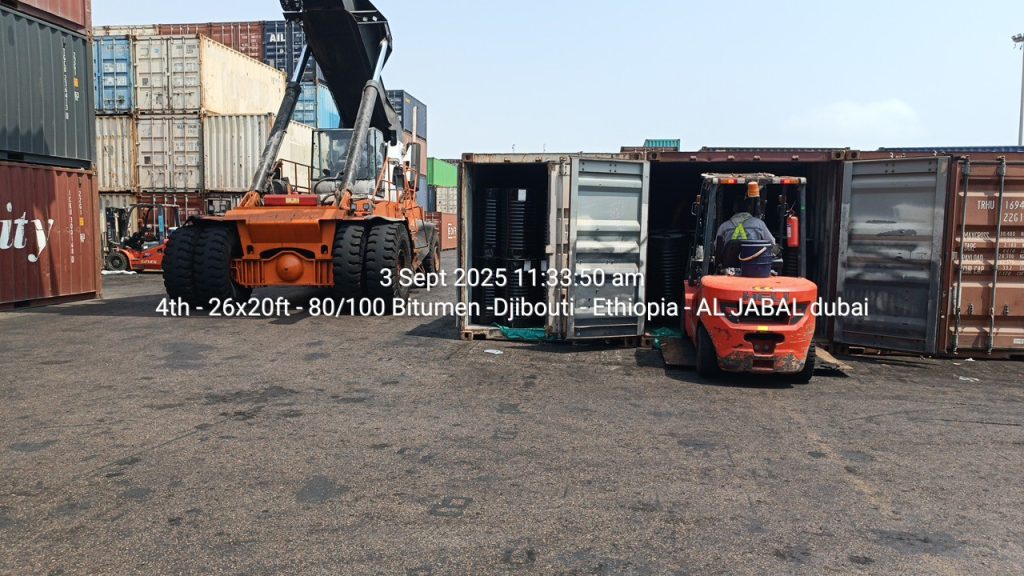
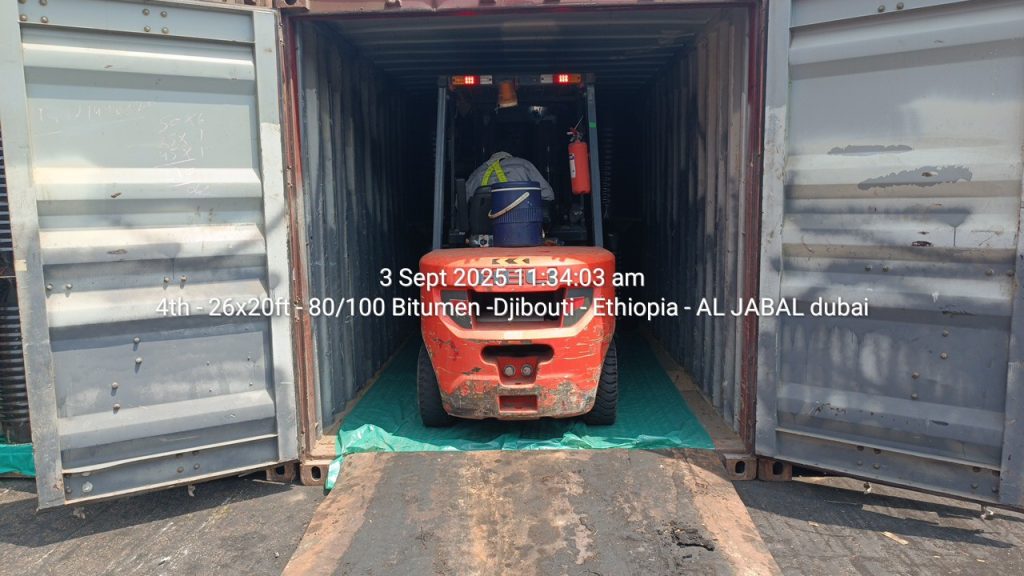
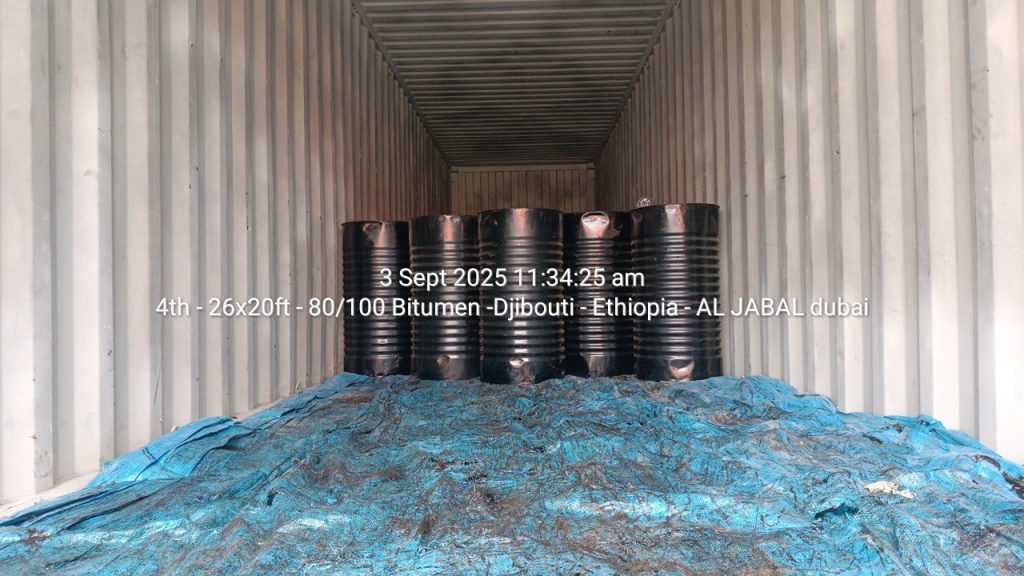
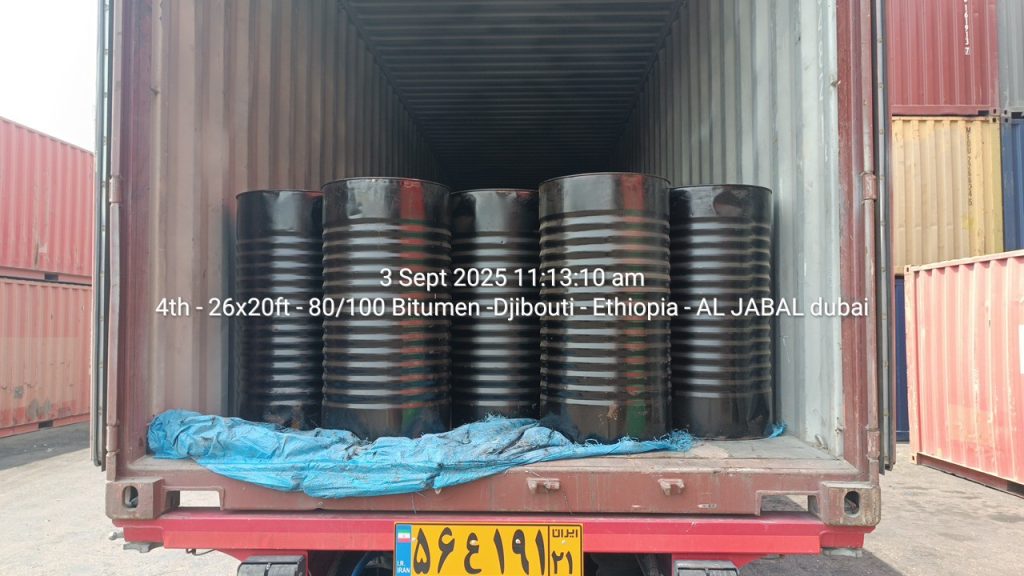
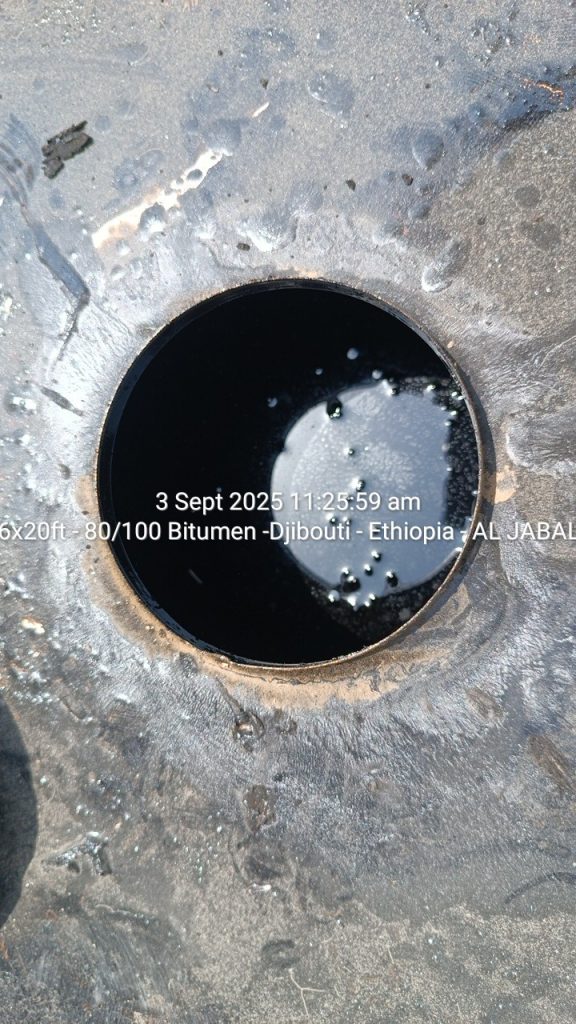
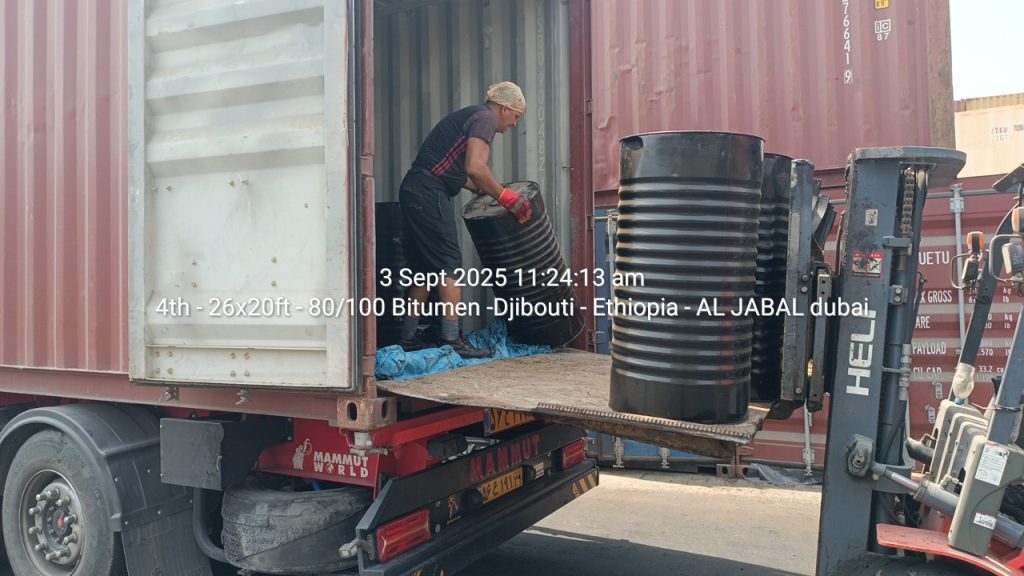
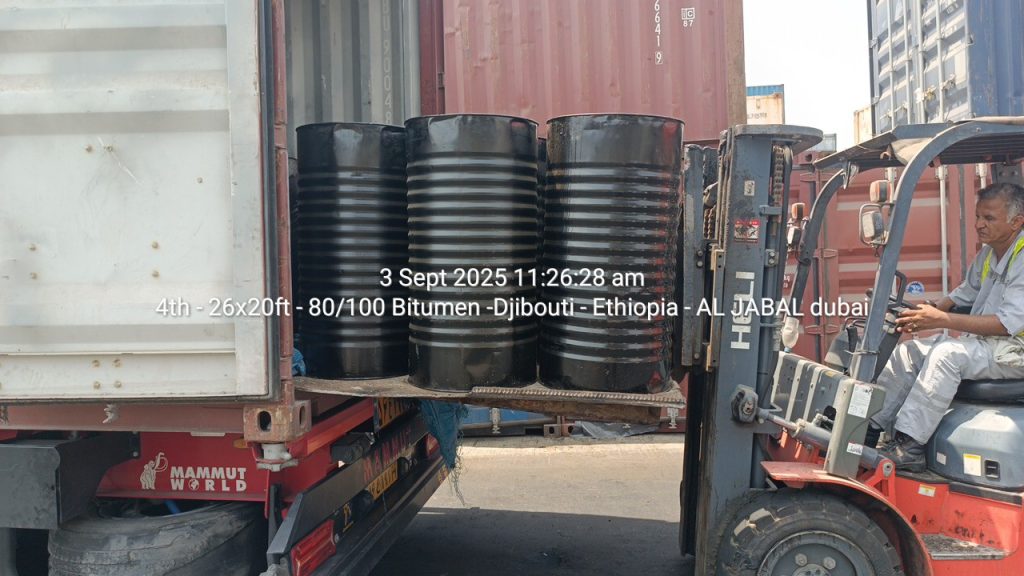
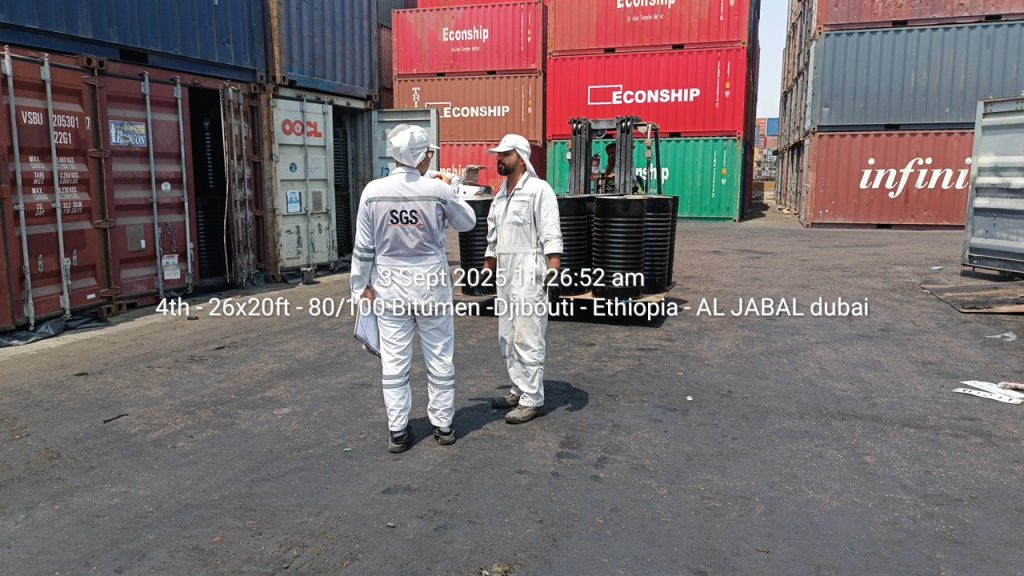
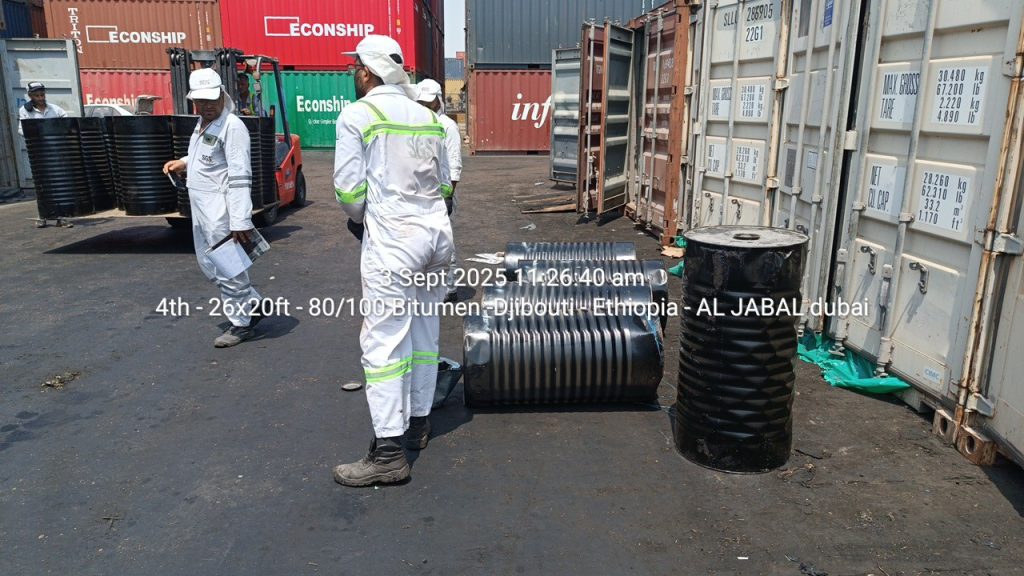
Background – Aljabal Holding & Bitumen Exports
Who is Aljabal Holding?
Aljabal Holding (sometimes referred to as Al Jabal or Al Jabal Global Holding) is a UAE-based exporter of industrial and petroleum-derived materials, including bitumen in various grades. Through its operations, Aljabal serves markets in Africa, Asia, and beyond, often supplying raw materials for road construction, industrial paving, waterproofing, and other infrastructure works. The company maintains a portfolio of bitumen grades (e.g., 80/100, 60/70, etc.) and has built a reputation for fairly large container shipments and strong logistics capabilities. Public reporting (websites, social media, shipping galleries) confirms several shipments in 2025. Al Jabal Global Holding+1
Bitumen 80/100 – Key Properties and Uses
- Definition & Specification: Bitumen 80/100 is a penetration-grade bitumen. The numbers “80/100” refer to its penetration at 25°C (in dmm, deci‐millimeters), meaning it has moderate softness/hardness — hard enough to resist deformation, soft enough to allow workable paving in warm climates without cracking in regular temperature shifts.
- Typical Uses: It is used in asphalt concrete (roads, highways) where moderate to heavy traffic exists, also in surfacing, seal coating, and sometimes in roof waterproofing. Its balance makes it suitable for climates with variation but not extreme cold.
- Relevance to Ethiopia: Ethiopia spans a range of climates (from highlands to warmer lowlands), and infrastructure projects often need a grade that handles both heat and rain while still resisting deformation under traffic. So Bitumen 80/100 is a logical choice.
What We Know: The 3rd August 2025 Shipment
Before exploring the question of a fourth shipment, it helps to review what is well documented regarding exports in August 2025.
Details of the Documented Third Shipment
- In August 2025, Aljabal Holding reportedly dispatched its third shipment of Bitumen 80/100 to Ethiopia. Al Jabal Global Holding+1
- The cargo consisted of 24 containers of 20-foot size each. Al Jabal Global Holding
- The shipment was for “Bitumen 80/100” grade. Al Jabal Global Holding
Timing, Route, and Logistics
- By public sources, the third shipment likely embarked in early August, loaded in the UAE (Jebel Ali), then shipped to Djibouti, which serves as the port hub for Ethiopia. From there, land transport moves it into Ethiopia proper. Al Jabal Global Holding
- The transit is typical for such exports—sea freight to Djibouti, customs and clearance, then overland trucking.
Is There Evidence of a Fourth Bitumen 80/100 Shipment in August 2025?
This section surveys public data and statements to determine whether a fourth shipment of Bitumen 80/100 by Aljabal Holding to Ethiopia in August 2025 can be confirmed, or whether the claim might be based on misinterpretation or confusion.
Data from Aljabal’s Own “Past Shipments” Gallery
- The “Past Bitumen Shipments in 2025” page on Aljabal’s site lists several shipments. Among them:
• A July 2025 shipment of “25 Containers of Bitumen to Ethiopia.” Al Jabal Global Holding
• Other shipments in May and June to various markets. Al Jabal Global Holding+1 - However, there is no explicitly labelled “4th Bitumen 80/100 shipment to Ethiopia in August 2025” listed with matching clarification. The listing seems to mention the third shipment more clearly. Al Jabal Global Holding+1
Social Media and Video Evidence
- Some video content (e.g. YouTube, Instagram) show loading operations for shipments of Bitumen 80/100 in August 2025 destined for Ethiopia by Aljabal. YouTube
- But these media sources more clearly correspond to the third shipment, showing the loading of containers and drums. None unambiguously state “4th shipment of Bitumen 80/100 to Ethiopia in August 2025.”
Potential Causes of Confusion
- It’s possible that “fourth shipment” is used loosely—maybe counting all bitumen shipments, regardless of grade or destination. For example, the “Past Filings” show a July shipment, and then the third in August; sometimes internal counts might treat a different grade or partner destination as a shipment.
- Another possibility: the term “fourth” refers to an anticipated shipment, or an upcoming one, rather than one already completed. Marketing content often teases an upcoming “next” or “future” shipment.
Implications of Multiple Shipments for Ethiopia’s Infrastructure
Even if the fourth shipment remains unconfirmed, the fact that there are repeated shipments of Bitumen 80/100 to Ethiopia has several important implications in terms of economics, infrastructure, and trade policy.
Infrastructure Building Momentum
- Ethiopia is undertaking significant road-building, paving, and transport improvements. Regular supply of bitumen ensures that these projects can stick to their timelines without material shortages.
- For example, road expansions, rural feeder roads, and industrial zone developments heavily depend on steady inputs like bitumen. Delays in material delivery can cascade into higher project costs, delays, and sometimes poor road quality.
Local Industrial Capacity & Quality Assurance
- Regular imports from a reputable supplier like Aljabal Holding bring with them certain standards of quality which may exceed locally available alternatives. This improves the long‐term durability of roads.
- Consistency in specifications (e.g., penetration, softening point, ductility) helps contractors better plan with confidence.
Trade and Economic Benefits
- Bilateral trade between the UAE (or the Gulf region) and Ethiopia improves with repeated successful shipments — in terms of trust, customs facilitation, and possibly better freight rates.
- Jobs are supported in multiple stages: from packing, shipping, logistics, customs, to local road construction and maintenance.
Logistics & Supply Chain Challenges
- Transporting bitumen, particularly in drum form, involves logistical complexity (e.g. careful loading, avoiding leakage or contamination, maintaining required temperatures where needed).
- Inland transport from Djibouti to Ethiopian construction zones adds further cost and risk, especially in rainy seasons when roads may be more difficult to traverse.
What to Look for to Confirm the Fourth Shipment
For stakeholders (contractors, investors, media, local authorities) who want to verify whether this fourth shipment exists, here are reliable signals or documents to seek:
| Document / Evidence | What It Should Show |
|---|---|
| Official press release from Aljabal Holding | Mention of “4th shipment” with grade (80/100), number of containers, date, port of origin/destination |
| Bill of Lading / Certificate of Origin | Shows product grade, origin, arrival port, vessel details |
| Customs clearance documents in Ethiopia or Djibouti | Matching details—product type, date, quantity |
| Photos or videos labelled clearly “4th shipment to Ethiopia – Bitumen 80/100” | Visual proof, container labels, branding, etc. |
| Reports from Ethiopian Roads Agency or local contractors | Acknowledgment of receipt, usage, specifications |
FAQs (Frequently Asked Questions)
- Q: Why is Bitumen 80/100 important for Ethiopia’s roads?
A: Because it strikes a balance between hardness and flexibility—able to handle both heavy traffic and variable weather—making roads more durable and cost‐efficient over time. - Q: How does Aljabal ensure quality of its bitumen shipments?
A: Through lab testing (penetration, softening point, etc.), pre‐shipment inspections by SGS, documented certificates, standardized packaging, and careful logistics—based on publicly available operational details. - Q: What role does Djibouti play in these shipments?
A: Djibouti is Ethiopia’s major seaport gateway. Goods are shipped there by sea and then transported overland into Ethiopia; this makes Djibouti a critical node in the supply chain. - Q: How can one verify if a “fourth shipment” has actually happened?
A: Look for official announcements, customs records, invoices or Bills of Lading, photographic/video proof with clear metadata, or references in government/roads authority documents. - Q: What are the challenges in transporting bitumen from UAE to Ethiopia?
A: Shipping cost, regulatory compliance, transport risk (especially in adverse weather), last‐mile logistics over challenging terrain, ensuring product integrity (avoiding leaks, contamination), and delays at ports or customs.
